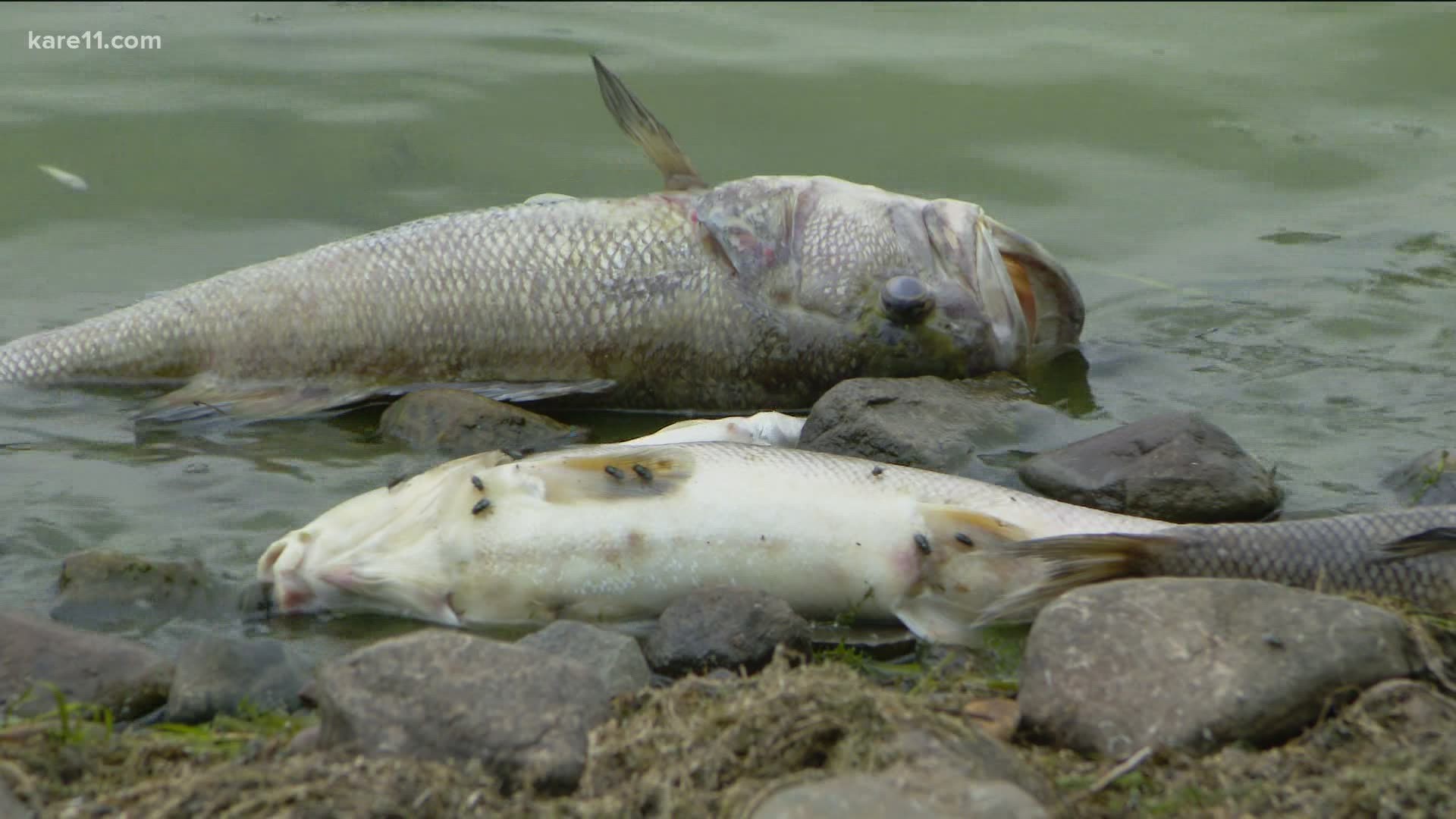PINE CITY, Minn. — The joys of lake life usually involve several elements.
"If you can't enjoy the yard and you know, having kids jump off the dock and swim, I don't know, it's disappointing," Cathy Peterson said. "It's been a bad year."
Peterson and her brother in law, Darrin Freetly both own homes on Pokegama Lake.
But lately with the lake so low, the algae so rampant...
"It doesn't feel like lakefront property," Peterson said with a laugh.
And just overnight, things started to resemble...something like a terrible fish market.
"This is what we woke up to this morning, we were looking out the window and we were trying to figure out what's all over the lake...it's fish," Freely chimed in.
Dead ones to be clear. An overnight fish kill brought all sorts of species to the surface, now gracing the shorelines of many homes.
Pokegama Lake residents aren't the only ones waking up to this fishy news.
DNR officials did too, and they're out there trying to investigate.
"Primarily we think it's due to environmental conditions," DNR Assistant Area Fisheries Manager Deb Vermeersch said. "Hot summer we've been having, hotter than normal that will heat water temps that can stress fish, can cause early algae blooms-- those deplete oxygen in the water. Any number of these factors, especially the stagnant conditions couple days and not much sunlight due to the haze and smoke in the air, we figure maybe one of these factors or combination of them might lead to depleted oxygen."
And Vermeersch said, yes, all this can happen as quickly as overnight.
"Actually the way plants synthesize, they actually do it where they're giving off the oxygen to the water column during the day when they're breathing," she said. "And overnight they stop giving off the oxygen and they start, other respiration takes place and they start to use up oxygen. If there's decaying matter on the bottom that will use up oxygen too."
In terms of clean up, Vermeersch said the DNR has no part in that role, and that the residents will have to clean up their own shorelines.
"There's not really any agency that's prepared to deal with anything of that magnitude, it comes as a matter of individual lakeshore owners banding together," she said.
"We want to get it out as fast as possible or its just going to smell worse and get trash bags," Freely said. "And the side-by-sides out here and reach out to farmers and see we know some farmers and -- if anyone will want them, if not we'll have to dispose of them."

